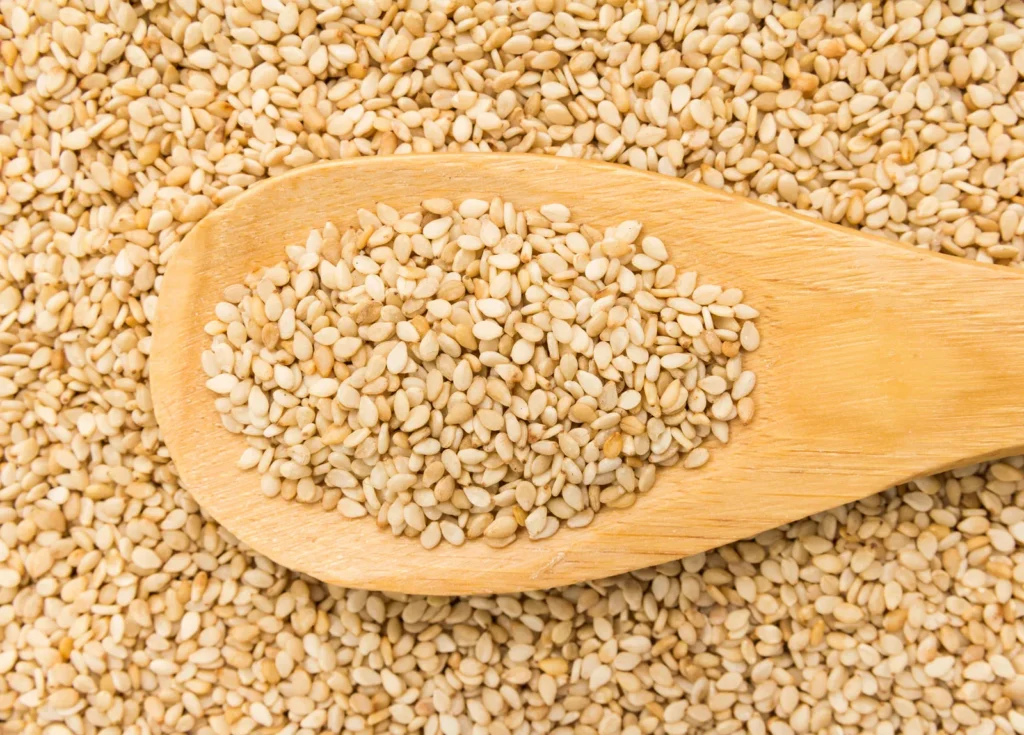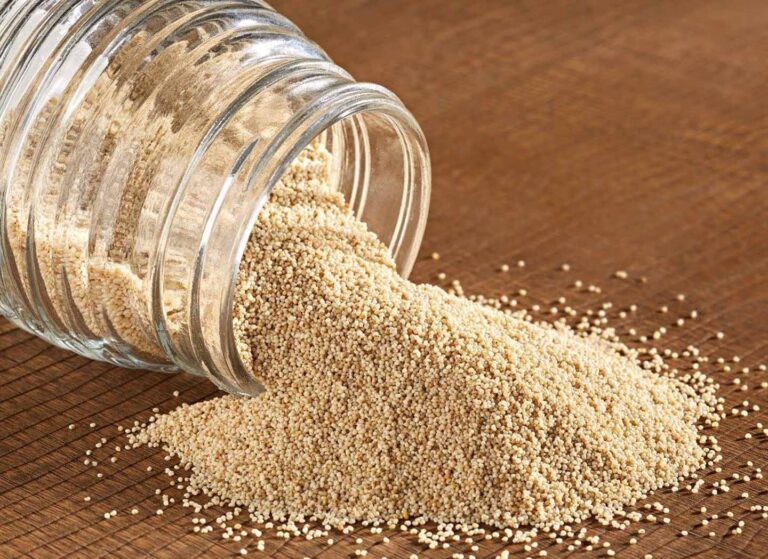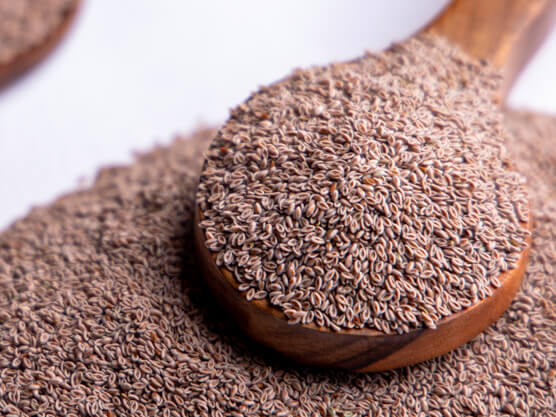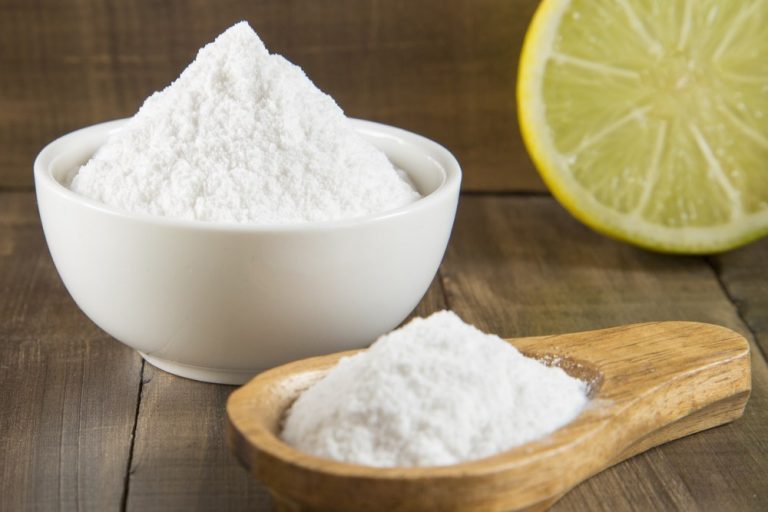Which Role of Sesame Seeds In Weight Loss Journey
Sesame seeds or til are known to be an excellent source of protein, which helps increase your metabolic rate and curbs hunger, thereby avoiding excessive calorie consumption and aiding weight loss. Fibre-rich foods can help you lose fat but maintain muscles. Loaded with plant-based protein, and healthy fats, sesame seeds are the perfect addition to any weight-loss diet.
From keeping you satiated to boosting digestive health to promoting a healthy heart and brain, these tiny seeds are more capable than you think. Sesame seeds are rich in fat, protein, minerals, vitamins, and dietary fiber. Sesame oil, which is obtained through traditional oil production methods, is rich in unsaturated fatty acids, fat-soluble vitamins, amino acids, etc.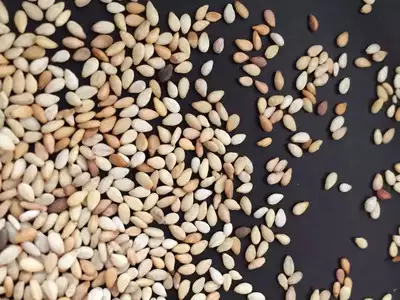
Here, I am Sharing some questions and these are in every single mind:
1Q: Is sesame good for losing weight?
2Q: Which seed is best for weight loss?
3Q: Do sesame seeds have a lot of fat?
4Q: How to help sesame seeds in weight loss?
5Q: Can I eat sesame seeds raw?
6Q: Is it OK to eat sesame seeds every day?
Many more…
Nutrition Of Sesame Seeds
Sesame seeds are tiny, oil-rich seeds derived from the Sesamum indicum plant, and they are commonly used in various culinary applications around the world. These seeds are not only flavorful but also packed with essential nutrients.
Here’s an overview of the nutritional content of sesame seeds:
1: Macronutrients:
Protein: Sesame seeds are a good source of protein, containing about 4.7 grams of protein per ounce (28 grams).
Fats: They are rich in healthy fats, particularly monounsaturated and polyunsaturated fats. Sesame seeds are also a good source of omega-6 fatty acids.
2: Micronutrients:
Vitamins: Sesame seeds contain various vitamins, including B vitamins such as thiamine (B1), niacin (B3), and folic acid (B9). They also contain vitamin E, which has antioxidant properties.
Minerals: Sesame seeds are rich in minerals like calcium, iron, magnesium, phosphorus, zinc, and selenium. Calcium content is particularly noteworthy, making sesame seeds a good option for those looking to increase their calcium intake.

3: Dietary Fiber:
Sesame seeds contain dietary fiber, which is important for digestive health. Fiber helps promote a feeling of fullness, regulates bowel movements, and supports overall gut health.
4: Antioxidants:
Sesame seeds contain various antioxidants, including sesamin and sesamol. These compounds have been studied for their potential health benefits, including anti-inflammatory and anti-cancer properties.
5: Phytochemicals:
Sesame seeds contain phytochemicals, including lignans, which have been associated with potential health benefits, such as cardiovascular health.
6: Caloric Content:
Sesame seeds are relatively calorie-dense due to their fat content. One ounce (28 grams) of sesame seeds contains around 160 calories.
7: Gluten-Free:
Sesame seeds are naturally gluten-free, making them suitable for individuals with gluten sensitivity or celiac disease.
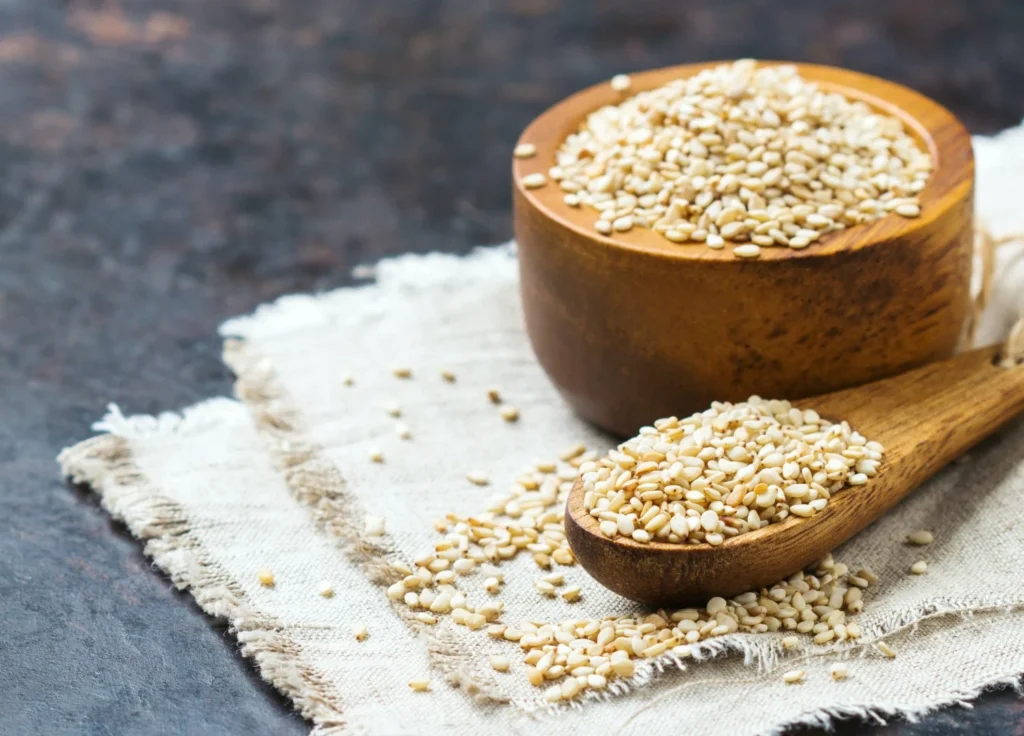
Which Role Of Sesame Seeds In Weight Loss Journey?
Is it possible Sesame Seeds Help To Weight Loss?
Sesame seeds can be a nutritious addition to a weight loss diet, but it’s important to keep in mind that no single food can guarantee weight loss on its own. Weight loss is typically achieved through a combination of factors, including a balanced and calorie-controlled diet, regular physical activity, and overall healthy lifestyle choices.
Here are ways in which sesame seeds may potentially contribute to weight loss:
- Sesame seeds are rich in essential nutrients, including protein, healthy fats, vitamins, and minerals. Including nutrient-dense foods in your diet can help ensure that you meet your nutritional needs without consuming excessive calories.
- Sesame seeds contain protein and dietary fiber, both of which can contribute to a feeling of fullness.
- Foods that help you feel satisfied can aid in controlling appetite and reducing overall calorie intake.
- The fats found in sesame seeds are predominantly unsaturated fats, including monounsaturated and polyunsaturated fats.
- These healthy fats can be part of a balanced diet and may contribute to satiety.
- Sesame seeds have a relatively low glycemic index, meaning they have a smaller impact on blood sugar levels. Foods with a lower glycemic index are generally considered beneficial for weight management.
- Sesame seeds can be incorporated into a variety of dishes, such as salads, stir-fries, and smoothies, making it easier to maintain a diverse and enjoyable diet while pursuing weight loss goals.
However, it’s important to consume sesame seeds in moderation, as they are calorie-dense due to their fat content. Additionally, weight loss is a complex and individualized process, and there is no one-size-fits-all approach. It’s advisable to consult with a healthcare professional or a registered dietitian to develop a personalized and sustainable weight loss plan based on your specific needs and goals. They can guide portion sizes, overall dietary choices, and lifestyle modifications that align with your health objectives.
